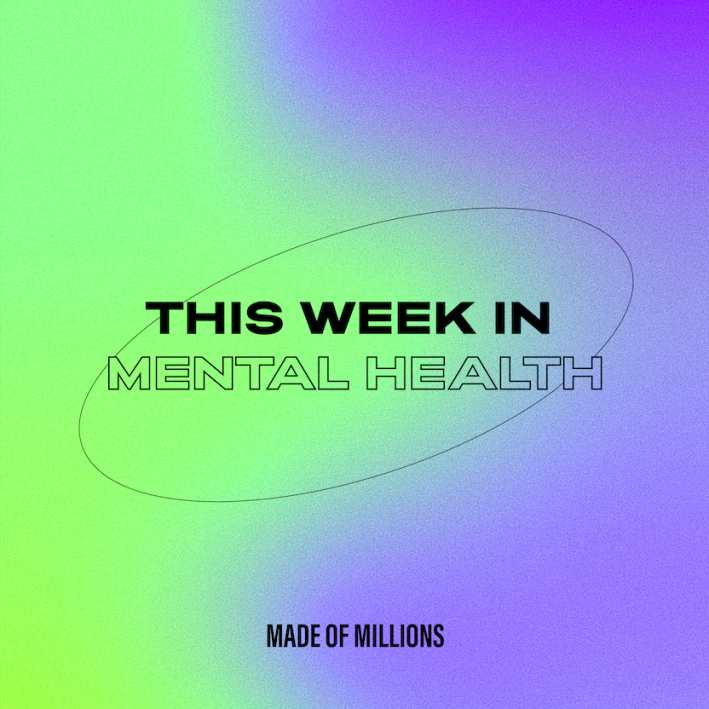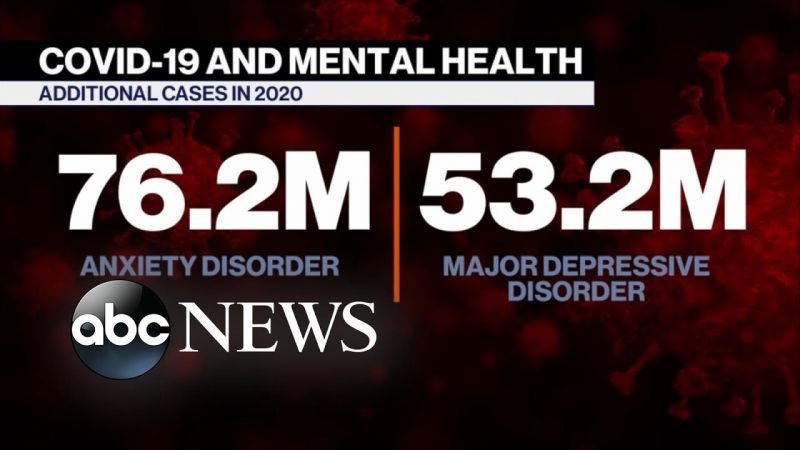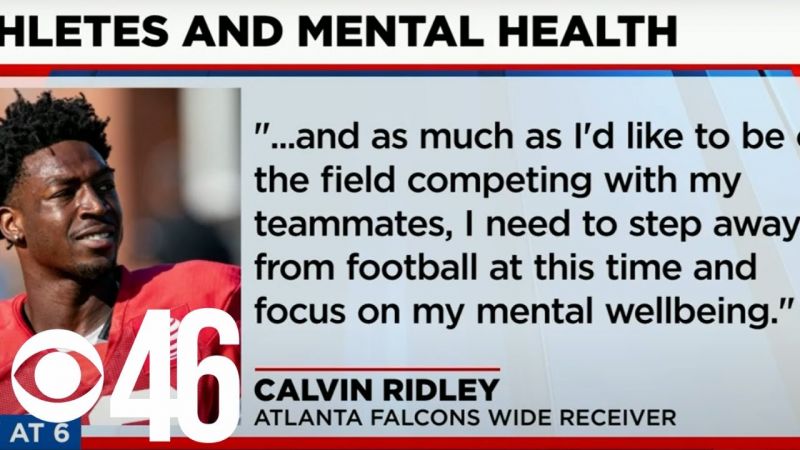This Week In Mental Health
The latest on research and advocacy for the week of November 1st.
Escrito por Esther Fernandez

01 Research looks at screen time and mental health, eco-anxiety in the UK, a new depression treatment, and more.
02 Football player Calvin Ridley and singer Jewel start conversations about mental health, and Dr. Aaron T. Beck, who created CBT therapy, died this week at the age of 100.
TW// Mentions of suicide
Conversations about mental health have grown exponentially over the last decade, with more and more people committing to personal and collective wellness. While we have a ways to go before mental health awareness, education and treatment are accessible to all, each day brings new and positive strides within the field.
Our This Week In Mental Health series covers the latest happenings in research, treatment, human interest stories, and more. Stay updated on new developments so you’re better equipped to navigate the world, and most importantly, your own recovery.
Here’s what’s happening the week of November 1st.
Research
Adolescents’ Recreational Screen Time Doubled During Pandemic, Affecting Mental Health
During the pandemic, youth doubled their screen time from 3.8 to 7.7 hours, not including school related screen time. Researchers from UC San Francisco looked at over 5,400 youth aged 12-13, and found that in particular, lower income and Black and Latinx youth had more screen time compared to high income and white youth. The lead author explains that increased screen time can lead to worry, stress, less physical activity, and worsened coping skills.

COVID-19 And Mental Health
Risk Of PTSD, Anxiety, Loneliness After Covid-19 Hospitalization
People who were hospitalized with COVID-19 in the beginning of the pandemic — April and June 2020 — have higher rates of PTSD, anxiety, and loneliness. The study, done by General Hospital Psychiatry, surveyed 178 participants, and found that those who were hospitalized with COVID-19 were more likely to experience mental health struggles compared to people hospitalized without COVID-19. It was reported that 25 percent screened positive for PTSD compared to 7 percent of those hospitalized for non-COVID related diagnoses. Of those with COVID-19, about 37 percent received treatment for their mental health.
Eco-Anxiety Over Climate Crisis Suffered By All Ages And Classes
A new survey shows that 78 percent of people in the UK have eco-anxiety. The study, done by Global Future and the University of York, looked at over 2,000 participant responses. It was found that across ages and social classes, 56 percent of people believe that climate change will have a greater effect on the world than COVID-19. The authors of the study urge politicians to understand how widespread eco-anxiety is, beyond just youth. Of those surveyed, 31 percent reported that the Cop26 summit will create “little or no effect.”
Experimental Depression Treatment Is Nearly 80% Effective In Controlled Study
Stanford University created a new type of treatment, Stanford accelerated intelligent neuromodulation therapy, or “SAINT”, that helps almost 80 percent of those with severe depression. The study looked at a new type of transcranial magnetic stimulation that helps participants reach remission within days, with minimal side effects. The new treatment targets certain locations of the brain, uses more pulses per session, and has patients participate multiple times a day rather than just once. The senior author explains that he would like to see this treatment used in crisis situations because of how quickly people can achieve remission.
Despite Mental Health Crisis, Study Shows Suicide Rate Declined
A study from the Centers for Disease Control and Prevention’s National Center for Health Statistics found that suicide rates decreased by 3 percent in 2020 compared to 2019. More specifically, suicide decreased by 2 percent for men and 8 percent for women. The rates of suicide were highest in the summer and lowest in late fall and winter. However, despite the overall decrease, BIPOC and certain age groups saw an increase.
One Answer To High Veterans’ Suicide Risk — Social Support
Veterans with high risk of suicide can reduce their risk with emotional support. Researchers assessed veterans’ polygenic risk scores for suicide — genes that play a role in suicidal ideation — and found that for those who have high risk scores, optimism and support from loved ones can help decrease and stop suicidal ideation. The study was done by Yale and the National Center for PTSD, and the results show that even though some veterans may have a higher genetic risk for suicide, psychosocial factors can be used to lessen that risk.
Advocacy
Atlanta Falcons Star Calvin Ridley To 'Step Away From Football' To Focus On Mental Health
Football player Calvin Ridley announced he will no longer play for the Atlanta Falcons in order to focus on his mental health. After not playing at their most recent game — the second game he’s missed this season — he announced he will be stepping away from football for the time being. He explains how the past few weeks have been challenging for him, and that the break will help become a better version of himself for the future.

Falcons Wr Calvin Ridley Steps Away From Football To Focus On His Mental Health
Jewel Shares How Her Struggle With Panic Attacks And Agoraphobia Inspired Her Mental Health Advocacy
Singer Jewel talked to Yahoo about her mental health advocacy and her personal experiences with anxiety, panic attacks, and agoraphobia. Jewel launched the Inspiring Children Foundation in 2004, which helps provide mental health resources for at-risk youth. She is also an ambassador for One Mind. Beyond her advocacy, she shares about the importance of meditation, how to stay present, and common misconceptions people have about mindfulness.
Aaron Beck Death: Doctor Who Shaped Cognitive Therapy Field Dies At 100
The psychotherapist who created cognitive behavioral therapy, Dr. Aaron T. Beck, died this week at the age of 100. In the 1960’s, he began identifying cognitive distortions in the patients he was treating, and sought to create a new treatment that combated these thoughts. The cognitive behavioral therapy that he developed helped change the way clinicians treat disorders such as depression and anxiety. His daughter shares that his groundbreaking work helped to inspire, “... students, clinicians, and researchers for several generations.”
Apoya nuestro trabajo
Nuestra misión es cambiar la manera en que el mundo percibe la salud mental.



















